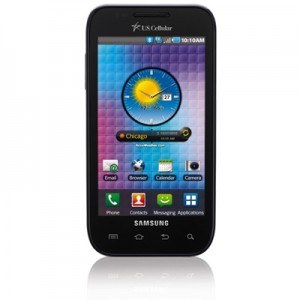Is Your Kid Ready for a Mobile Phone? Here's Help! by Elisa Schmitz

It used to be that parents debated whether or not to get their child a mobile phone. These days, for most parents the question isn’t if, but when – and how, what features and what limits to set. The options may seem a little overwhelming at first, but getting the 411 on cell phone use for kids means making the right call for your child’s needs and your own peace of mind.
First of all, there’s the when. Studies show that most kids get their first cell phone around the start of middle school at age 12 or 13, but some elementary-aged kids are joining the cell phone club, and the age for a child’s first cell phone has gotten progressively younger over the years. According to the American Academy of Pediatrics, the main reason younger kids get a phone is safety, either for medical reasons like extreme allergies or because both parents work full-time. The gap between younger kids and tweens and teens having their own cell is significant, though: 22 percent compared to 60 percent and 84 percent, respectively, says the AAP.
Reasons why most parents wait to put a cell phone in kids’ hands are plentiful: Cell phones cost money and can be lost or broken – not a good mix with young children who aren’t always the best when it comes to keeping tabs on their stuff. Distracted youngsters on cell phones also make for dangerous situations when crossing streets or using them at inappropriate times.
When you’re ready for your child to have her own cell phone, you can add a new line onto your existing plan or you can get a prepaid cell phone. The appeal of prepaid plans is that they typically have fewer features (meaning basic phone and text abilities), no commitment and no worries about paying extra if your child goes over her allotted minutes/texts. An additional line on your family plan can make the phone itself cheap or even free, but the big benefit to adding a line to your existing plan is the parental controls, like GPS, monitoring cell activity, setting talk/text limits and number blocking. However, some prepaid plans are designed specifically for kids and offer similar parental controls.
Phone models range from smartphones with online data packages, both in prepaid and family plans, to basic models designed specifically for kids that have simplified features and an emergency button and make only calls. Something in the middle typically allows for calling and texting, with flip-out or sliding keyboards and camera features.
Deciding what kind of plan and features you need comes down to how your child will use the phone and how often. Does she need a smartphone? Do you want to limit or prohibit text messaging? Can he call or text friends or only you? Is the phone for emergency use only? Are there ways to block online access or control costs if your child goes over her monthly texts or minutes? Age may play a part in these decisions. Kids 6 to 11 use their phones primarily for calling Mom and Dad, while tweens and teens spend more time texting than anything else.
Whichever plan you go with, make sure the provider you’re using has a vast, reliable network and that you charge the phone regularly. There’s no sense putting a cell phone in your child’s hand that won’t work when he needs it to. Then, before you hand it over, help your children become responsible phone owners. Start by showing them basic operating features like silencing the ringer and programming in contacts. Include “ICE” – in case of emergency – before important names in their phone’s contact list, and teach them about keeping the phone in a safe place to protect it from bumps and falls, as well as thieves.
You also should set clear guidelines for cell use and etiquette from the very start. Let them know what parental control features are in place on the phone and why. Talk to your child about who she can call or text and when she can and can’t use the phone, such as at school, in the movie theater, at the dinner table or in crowds, where strangers may overhear personal information. Set curfews for cell phone use so you don’t find your kids texting under the covers at 3 a.m., and perform regular spot checks of their phone activity to let you know who they’ve been communicating with and when. Talk about their cell use, and about issues like cyber-bullying and other inappropriate actions. And for kids with a driver’s license, explain to them the dangers of talking or texting while driving so they don’t end up a statistic.





start discussion